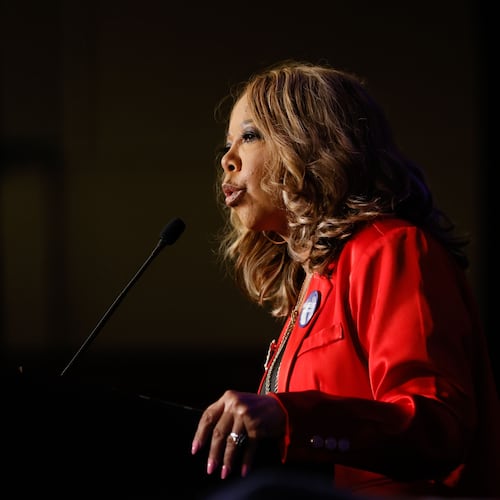After years of trying to bring casino gambling to Georgia, talk of getting legislation passed this year to do so has all but stalled as lawmakers prepare to return to the Capitol next week.
That hasn’t stopped gaming lobbyists from preparing for another push during the 40-day legislative session — more than a dozen already have registered for the 2018 session.
Gaming supporters have spent the past few legislative sessions working to pass a bill that would let Georgians decide whether casinos should be allowed in the state. Polls have shown that Georgia voters favor the idea.
But all three of the state's top leaders — Gov. Nathan Deal, Lt. Gov. Casey Cagle and House Speaker David Ralston, all Republicans — have expressed opposition to proposals that would allow anywhere from two to six casino resorts. Last year the Georgia GOP state committee also voted overwhelmingly to oppose casino gambling and horse racing.
Even if casino bills wind up going nowhere in 2018, developers have said they plan to play the long game.
“As the conversation continues, it’s important to consider the reality at hand: Georgians are already gambling at casinos in North Carolina and Alabama, and the tax revenue from that activity is not supporting much-needed programs in Georgia but instead is flowing from local communities to neighboring states,” said Alan M. Feldman, the executive vice president of global corporate communications and industry affairs for MGM Resorts International.
Gaming businesses have been big campaign donors, and their lobbyists have spent heavily on lawmakers. Heading into the 2016 session, for instance, gaming organizations and those connected to the business plowed more than $200,000 into the campaign war chests of leading legislators, and they paid for a fundraiser in November 2015 for Cagle, whose duties include serving as the Senate's president.
Contributions and lobbyist spending have slowed since the 2016 session, when it became clear it would take time for backers to win over the General Assembly, but money has continued to flow.
House Economic Development and Tourism Chairman Ron Stephens, R-Savannah, a leading backer, said he understands that politicians running for higher office typically avoid anything that could be considered controversial in election years.
“I’ll try every way in the world to try to get it done,” he said. “But about half the folks in the Senate are running for something else. Anything that even sounds controversial is going to be a tough sell.”
Backers of casino gambling in Georgia say it could create thousands of jobs and pump hundreds of millions of dollars into Georgia Lottery-funded education programs such as the HOPE Scholarship. But many conservative groups and faith leaders oppose it.
Virginia Galloway, a lobbyist for the Faith and Freedom Coalition of Georgia, said even though legislation didn’t gain traction last year, she plans to keep an eye on the issue.
“Georgia is just too good a state to need casinos,” she said. “We certainly don’t need more bankruptcy and crime, certainly in the city of Atlanta or anywhere else in Georgia. I think Georgia would be wise to continue to avoid any movement on casino gambling.”
Stephens said he doesn’t envision any potential Georgia casinos attracting the type of crime that opponents often cite.
“We already gamble,” he said, alluding to the lottery. “We have for 25 years. And yes, whenever you gamble, there are negatives to it. But we’re talking destination resorts — $1.5 billion resorts.”
Lawmakers in support of bringing casinos to Georgia thought last year that dedicating a portion of the revenue raised to create a needs-based scholarship would lure enough Democratic support to get a bill through. Though that didn’t pan out, Stephens said he still believes the state needs to find a way to prop up the HOPE scholarship for Georgia’s college-bound students.
“Georgia has become a mecca for our best and brightest staying at home,” Stephens said. “It’s not about gambling for me, its about protecting the HOPE.”
Ralston, R-Blue Ridge, said he doesn’t believe there’s support for bringing casinos to the state.
“I don’t know that it’s a matter so much, anymore, of having personal moral objections to expanding gaming or gambling as much as it is, ‘What does this do to us as a state?’ ” Ralston told The Atlanta Journal-Constitution.
“I was in Mississippi this summer for a meeting on the coast and I’m driving up an down the coast thinking, do I really want Georgia to look this way?” Ralston said. “I mean, do I really? And I’ve got real hesitation about that.”
About the Author
Keep Reading
The Latest
Featured




